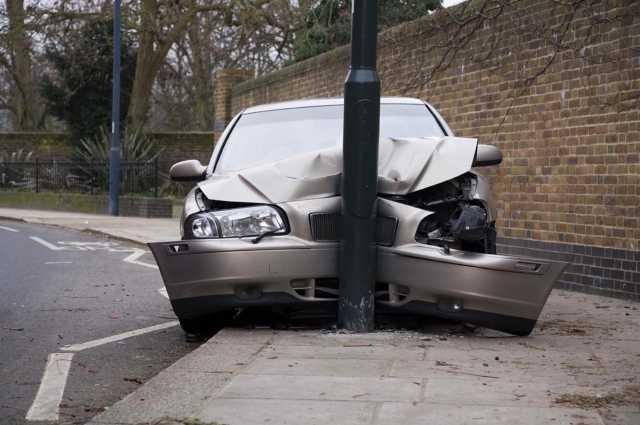Car insurance to rise £75 thanks to compensation reform? Don't believe the hype
After hailing whiplash reforms, the industry is now bleating about measures that will help other victims to deservedly get better settlements

Your support helps us to tell the story
From reproductive rights to climate change to Big Tech, The Independent is on the ground when the story is developing. Whether it's investigating the financials of Elon Musk's pro-Trump PAC or producing our latest documentary, 'The A Word', which shines a light on the American women fighting for reproductive rights, we know how important it is to parse out the facts from the messaging.
At such a critical moment in US history, we need reporters on the ground. Your donation allows us to keep sending journalists to speak to both sides of the story.
The Independent is trusted by Americans across the entire political spectrum. And unlike many other quality news outlets, we choose not to lock Americans out of our reporting and analysis with paywalls. We believe quality journalism should be available to everyone, paid for by those who can afford it.
Your support makes all the difference.Car insurance premiums to soar, the headlines screamed.
The reason for this disaster? The Government is going to change the formula for calculating compensation awards to accident victims.
Previously they would be discounted by 2.5 per cent to account for the returns available to a claimant from investing their money. That discount rate is now set to turn negative.
The rate is linked to the rate of interest payable on Government bonds, or Gilts, in theory the safest home for claimants’ compensation cash.
The trouble is, with inflation rising, the income from investing in those bonds has turned negative in real terms.
As a result the same goes for the discount rate, which will in future be applied at minus 0.75 per cent thanks to Ministry of Justice (MoJ) reforms.
Victims will get a little bit more, but, of course, spread across tens of thousands of awards, it soon mounts up.
“A crazy decision,” whined the Association of British Insurers (ABI), while issuing dark warnings about the impact on premiums which, it has been claimed, could rise by as much as £75 on average. “Our poor customers,” insurers wailed.
Fire departments were all but over-run, dealing with the rivers of crocodile tears cried on those customers’ behalf.
The real tears were shed by industry executives, worried about profits, and dividends and bonuses.
It’s all such a turnaround when compared to the end of last week. That was when insurers won a huge, and entirely unjustified, victory as a result of a different set of MoJ reforms that will sharply reduce the compensation available to the victims of whiplash injuries sustained through road accidents.
They will also no longer be able to claim for the cost of legal help for cases valued at less £5,000, which will in future be handled by small claims courts.
The move follows years of industry hype and lobbying, playing up questionable reports of alleging an “epidemic” of fake whiplash claims despite there being little in the way of hard evidence.
Insurers piously promised that they would pass any savings from reform on to motorists. Look, you’ll get £40 off your premiums on average, you lucky lot.
But there will be no official monitoring of that, and no penalty if the unofficial monitoring by those organisations that track prices reveal insurers’ promises to be no better than those coming from politicians.
Won’t the two reforms simply offset, is what you might be asking at this point.
Well here’s the thing. It’s rather clear that insurers are worried. They’re not sure they’ll be able to pass the full cost of the discount rate change on to motorists, even with the benefit they get from the whiplash reforms.
That explains the sharp fall in the share prices of some insurance companies in response to the decision. Competition, eh? Ain’t that a tick?
As a result it looks as if investors, and perhaps even executives, might have to shoulder some of the burden in the form of lower dividend payments, and bonuses. Which explains why insurers are so upset.
I’m no lover of the current Government, but the only crazy thing about this particular story is the amount of credibility parts of the media have given to the insurance industry’s response to it.
In reality, this is a rare example of Theresa May’s administration acting in the interest of justice. Who’d have believed that?
Subscribe to Independent Premium to bookmark this article
Want to bookmark your favourite articles and stories to read or reference later? Start your Independent Premium subscription today.
Join our commenting forum
Join thought-provoking conversations, follow other Independent readers and see their replies
Comments